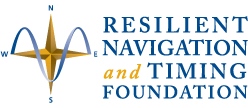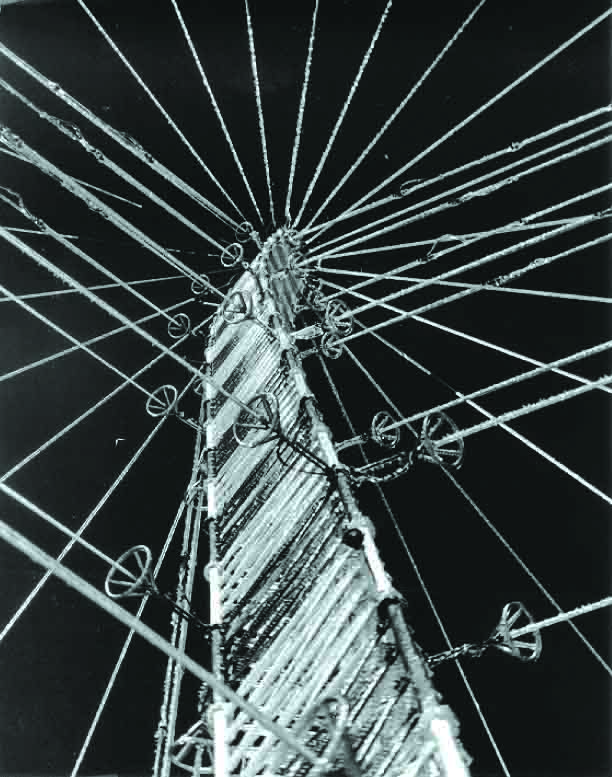
Lawmakers overseeing the Coast Guard approved language this week that would stop the agency from dismantling facilities needed for eLoran, a proposed system that has gained wide support as a backup in case GPS signals are jammed, blocked, spoofed, or otherwise rendered unusable.
In “markups” or adjustments to language in the FY 2015 Coast Guard authorization bill, a House transportation subcommittee proposes to halt the tearing down of stations in the Coast Guard’s old Loran-C navigation system, which was turned off in 2010.
Lawmakers overseeing the Coast Guard approved language this week that would stop the agency from dismantling facilities needed for eLoran, a proposed system that has gained wide support as a backup in case GPS signals are jammed, blocked, spoofed, or otherwise rendered unusable.
In “markups” or adjustments to language in the FY 2015 Coast Guard authorization bill, a House transportation subcommittee proposes to halt the tearing down of stations in the Coast Guard’s old Loran-C navigation system, which was turned off in 2010.
The enhanced system — which is jam-resistant, less expensive to operate, and has a higher data rate — was supposed to take Loran-C’s place. Currently used in the United Kingdom and soon to be built in South Korea, eLoran would have been able to provide American users two-dimensional positioning and navigation data as well as the timing information needed by a wide variety of critical infrastructure.
ELoran was not built, however, despite having wide public and private support. Planned for launch as a government program near the end of George W. Bush’s presidency, its funding was pulled by the Obama Administration in 2010 for reasons that remain somewhat unclear — ostensibly to save money, but the budgetary benefit would have been minor, most observers agree.
Support to change that decision has been building, however, and the Resilient Navigation & Timing (RNT) Foundation was launched last year with the goal of convincing the government to rededicate the old Loran-C sites to eLoran and install the system — perhaps in partnership with the private sector.
The Loran sites are currently being dismantled by the Coast Guard — an action that could sharply raise the cost of establishing eLoran, potentially make it harder for system managers to demonstrate the system’s capabilities to the private sector, and possibly undermine the technical advantages of the system itself.
“You don’t want to sell off that land because that land was selected back in the 1960s for (its) propagation characteristics. And when you talk about low-frequency systems like Loran its really important that you have the right kind of propagation,” said Logan Scott of LS Consulting, an expert on GPS and radionavigation signals.
“Things like ground conductivity, water content, salt content — all those come into play, Scott added. “So, selling off that land would have been a huge mistake in light of what we know about the need for Loran now.”
One of eLoran’s really great characteristics, said Scott, is that it is “intensely difficult to jam.” You would need a huge antenna he said, and that would be easy for authorities to find.
“It’s really becoming very obvious now that we need to reinstitute the system in North America. And that’s the direction I expect us to go,” he said.
House Subcommittee Intervenes
The new congressional initiative would stop the dismantling of the sites for at a year after the bill is enacted or until the Secretary of Homeland Defense “provides to the Committee on Transportation and Infrastructure of the House of Representatives and the Committee on Commerce, Science, and Transportation of the Senate a determination that “such infrastructure is not required to provide a positioning, navigation, and timing system to provide redundant capability in the event GPS signals are disrupted” — whichever is later.
The language was proposed as an amendment by Rep. Duncan Hunter, chairman of the House Coast Guard and Marine Transportation Subcommittee to the Coast Guard authorization bill, more formally known as the Howard Coble Coast Guard and Maritime Transportation Act of 2014 (H. R. 4005).
Hunter showed his displeasure with the Department of Homeland Security (DHS), the parent agency of the Coast Guard, during a February 4 hearing. He blasted DHS for its failure to make a required decision on creating a backup for GPS, mandated under a 2004 presidential directive.
“One of the reasons I am interested in this,” said Hunter, “is that DHS has studied the presidential directive that told them to create a backup system for GPS and their conclusion was that ‘We need to study it more.’” “They did a study and now they are going to do more studies and that’s the circle loop, the endless loop of stupidity we have in Congress instead of just getting something done.”
The cost to establish eLoran would be low by federal government standards — so low it’s been described frequently as amounting to a “rounding error” when compared to other programs.
Dana Goward, president of the RNT Foundation, told the committee during the hearing that the U.S. could establish the system in the continental United States for about for about $40 million.
That’s $40 million with an “m,” he told the committee.
“We don’t deal with things that small,” quipped Rep. John Garamendi of California, the subcommittee’s top-ranking Democrat.
DoT, DoD (But Not DHS) Meet with eLoran Advocates
The Departments of Transportation and Defense, which are concerned about GPS vulnerabilities, have met with RNT Foundation representatives to explore the group’s proposal to build eLoran via a public-private partnership. Both agencies declined to comment on the legislation. As of the February 4 hearing DHS had not met with the foundation.
The amended bill, which was approved by the full House Transportation Committee on February 11, gives DHS a way forward. It supports public-private cooperation saying that the DHS secretary may enter into agreements with “federal entities and other public or private entities… to develop a positioning, timing, and navigation system, including an enhanced LORAN system, to provide redundant capability in the event GPS signals are disrupted.”
“We were very pleased at Chairman Hunter’s concern and attention and we think this is a really constructive way forward,” Goward told Inside GNSS.
DHS did not respond to a request for comment on the measure.
Scott called the measure “very positive,” a perspective echoed by GPS spoofing expert Todd Humphreys, director of the University of Texas at Austin Radionavigation Laboratory
“This is great news,” Humphreys told Inside GNSS. “It doesn’t take us all the way to reviving LORAN (or eLORAN) as a backup to GPS, but at least it halts the dismantling of the LORAN infrastructure.
“And my suspicion is that DHS will be unable to show to anyone’s satisfaction that the old LORAN infrastructure is ‘not required’ to provide a PNT backup to GPS, so it will be safe for the foreseeable future. It’s a good day for robust PNT.”





